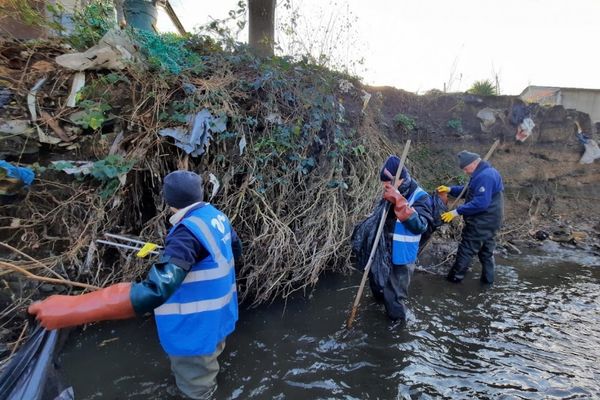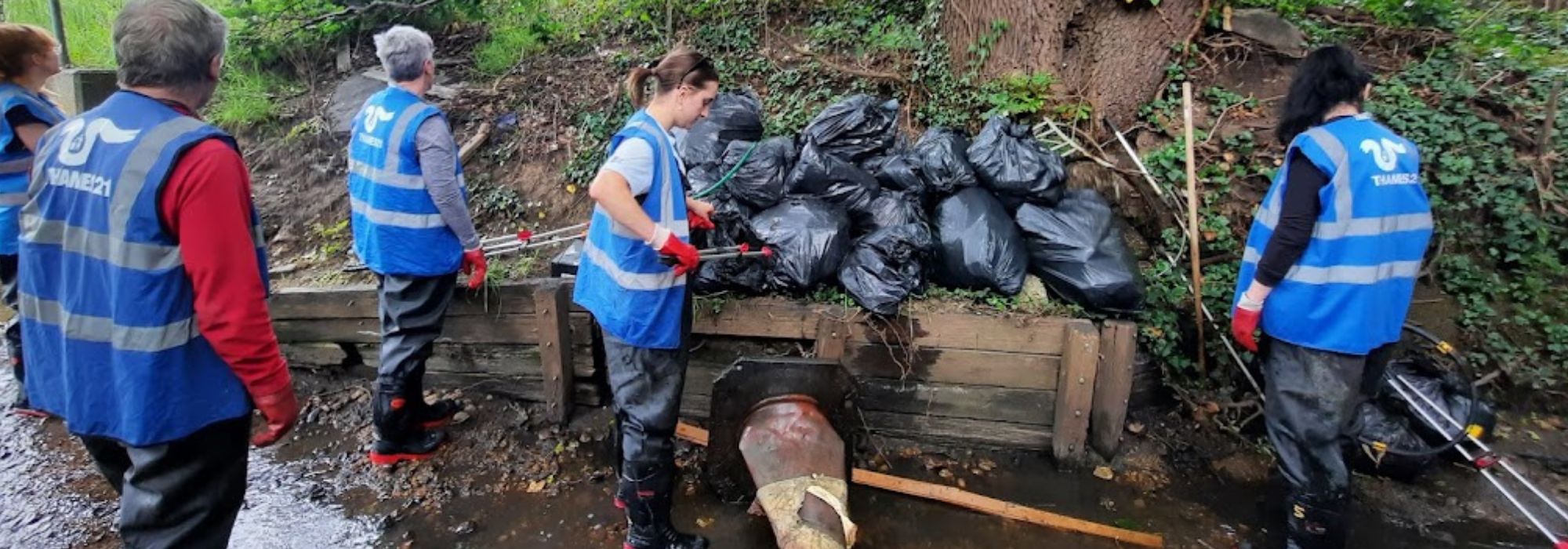Single-use items make up 85% of plastic waste collected at biggest ever Thames ‘Plasticblitz’
 Single-use plastic items such as wet wipes, sweet wrappers and plastic bottle tops were the most commonly littered items found in a recent clean-up of the River Thames and its tributaries in an event called the ‘Plasticblitz, which was organised by environmental charity Thames21 and the Environment Agency for the second year running.
Single-use plastic items such as wet wipes, sweet wrappers and plastic bottle tops were the most commonly littered items found in a recent clean-up of the River Thames and its tributaries in an event called the ‘Plasticblitz, which was organised by environmental charity Thames21 and the Environment Agency for the second year running.
Over a course of September, Thames21, community groups, including the Rotary in the Thames Valley, and the Environment Agency carried out litter picks across 45km of river bank, spanning from Gloucestershire to Rainham in Essex.
Nearly 500 volunteers collected 437 bags of rubbish. A total of 14,581 items were individually categorised, with 85% of this being plastic. The worst plastic offenders were wet wipes, bottle tops, sweet wrappers and cigarette stubs.
The issue of plastic in the oceans has received a lot of attention in recent years, but the environmental challenges faced by rivers and the freshwater environment is also concerning.
A key aim of the event is to collect data on the litter being found in this freshwater environment to give a comprehensive picture of the problem.
Will Oliver, Catchment Partnership Development Manager at Thames21, said: “Plastic pollution is an ongoing and serious threat to the River Thames and its tributaries. With all of the national publicity about the condition of our rivers, it’s satisfying to know that local groups have worked together to tackle this challenge and collect vital data to lobby for change.
“The Plasticblitz has built on the success of last year’s event and proved to be an eye-opener to the litter problem that the Thames suffers from. We would like to take this opportunity to say thank you to all those who got involved and hope that even more teams participate next year.”
Maria Herlihy, Operations and Waterways Manager at the Environment Agency, said: “The Plasticblitz was a collective effort to clean up the River Thames and its tributaries, and at the same time collect data on the types of litter being found. Each piece of litter collected had the potential to break down into many smaller pieces (microplastics) polluting our rivers and seas.
“As well as causing localised harm to wildlife, our use of plastic has wider implications. Its use is intertwined with climate change as plastic manufacture has a carbon footprint. We can all find ways to reduce the number of single-use plastic items we buy, and dispose of our waste responsibly.”
